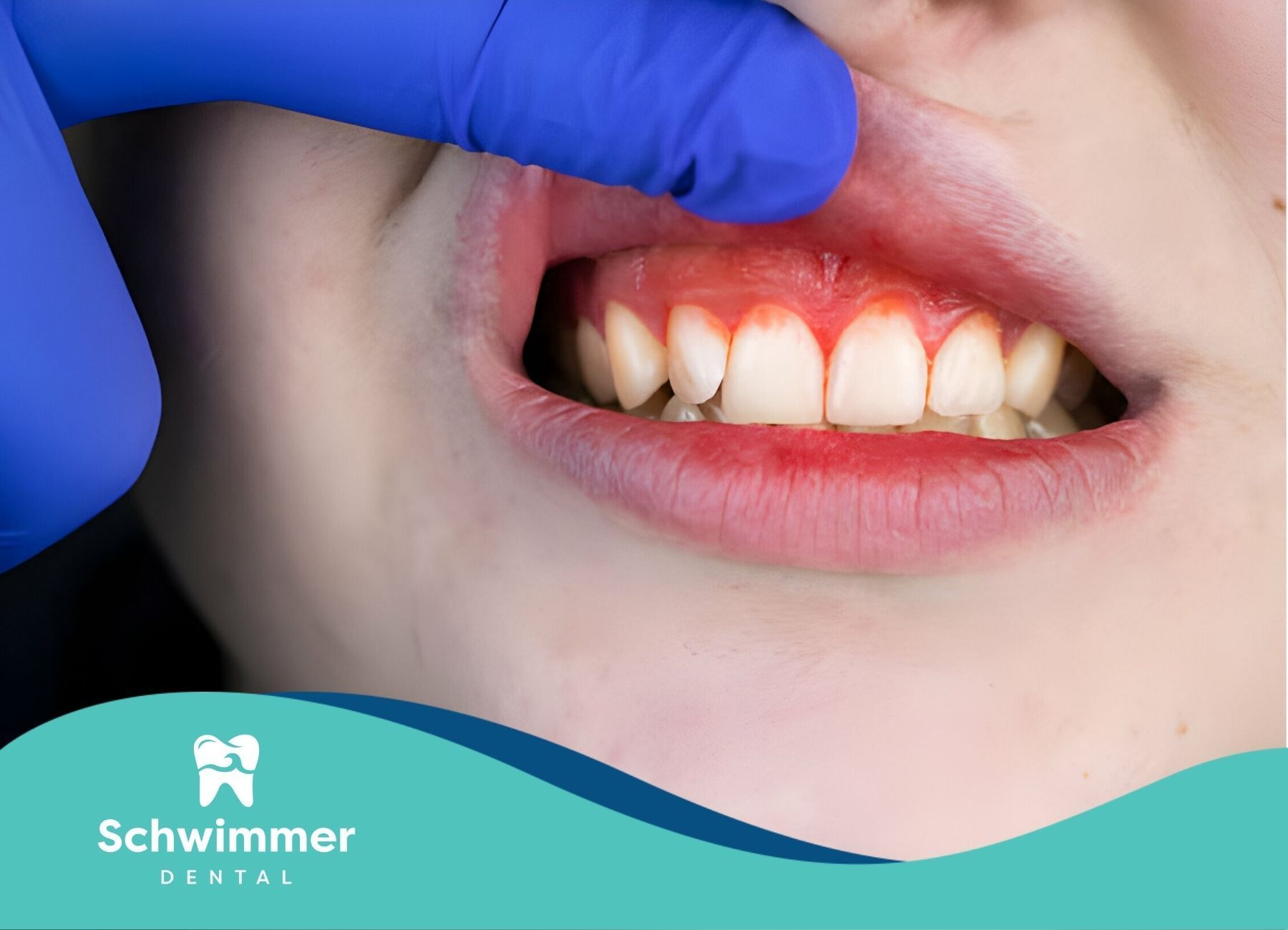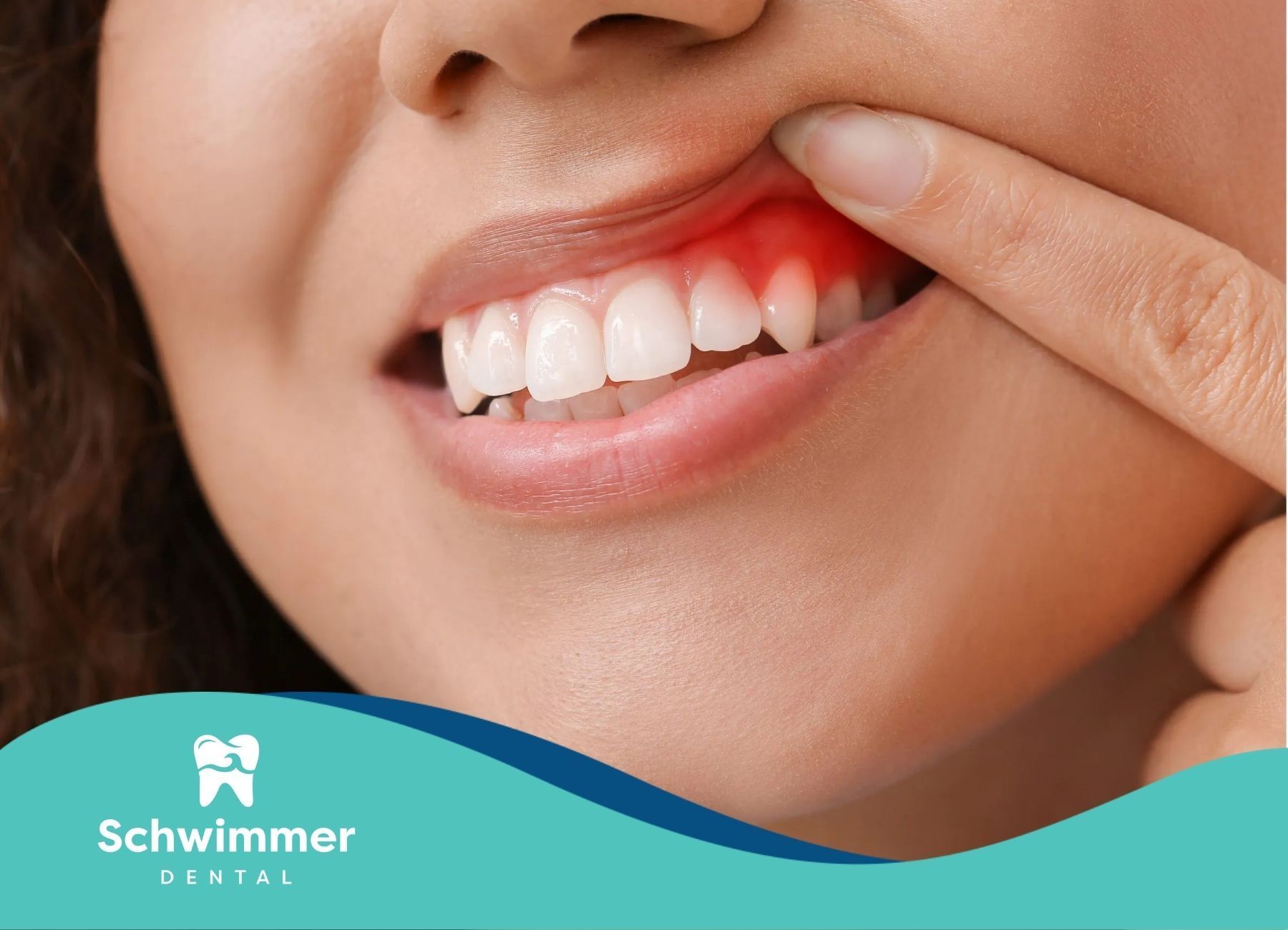Have an appointment? Complete the Intake Form
Effects of Overbrushing: What It Does to Your Teeth and Gums
Brushing your teeth is one of the most fundamental habits for maintaining good oral hygiene. It’s essential for removing plaque, preventing cavities, and keeping your breath fresh. However, while brushing is important, there is such a thing as overdoing it. Overbrushing, or brushing your teeth too frequently or too aggressively, can lead to various dental problems that can have long-lasting effects on your oral health.
In this blog post, we will discuss the effects of overbrushing, how to identify if you're overbrushing, and how to brush your teeth properly to avoid potential damage. By the end of this post, you’ll have a better understanding of how to protect your teeth and gums while maintaining excellent oral hygiene.
What is Overbrushing?
Overbrushing occurs when a person brushes their teeth too aggressively, too frequently, or for too long. This can result in the wear and tear of the enamel (the outer protective layer of your teeth) and the gums. Enamel is the hardest substance in the human body, but it can still be worn down over time with improper brushing habits. Similarly, aggressive brushing can irritate and damage the gum tissue, leading to gum recession.
Most people understand the importance of brushing their teeth regularly, but they might not realize that excessive brushing can do more harm than good. It’s essential to find a balance and learn the correct techniques for brushing to ensure you don’t negatively impact your oral health.
The Effects of Overbrushing on Your Teeth
Overbrushing can result in several harmful effects on your teeth, most notably enamel erosion and tooth sensitivity.
Enamel Erosion
Enamel is the protective outer layer of your teeth that helps prevent decay. Unfortunately, enamel cannot regenerate once it’s lost, making it important to protect it. Over time, aggressive brushing can gradually wear down the enamel, leaving your teeth vulnerable to cavities, staining, and even fractures. As enamel wears away, the underlying dentin layer of your teeth becomes exposed, which can lead to increased sensitivity to hot, cold, or sweet foods and drinks.
Symptoms of enamel erosion include:
- Teeth that appear more yellow (as dentin is usually yellowish in color).
- Increased sensitivity when eating or drinking hot, cold, or sugary substances.
- Tooth discoloration or staining.
- Chips or cracks in your teeth.
Tooth Sensitivity
One of the most noticeable consequences of overbrushing is increased tooth sensitivity. As enamel wears down, your teeth become more exposed to the elements. The nerves in the underlying dentin layer become less protected, making your teeth more sensitive to temperature changes or acidic foods. Brushing aggressively with hard bristles or for too long can accelerate this process, leading to a constant discomfort in your mouth.
How to prevent tooth sensitivity caused by overbrushing:
- Use a soft-bristled toothbrush.
- Avoid brushing too aggressively or with excessive force.
- Use toothpaste designed for sensitive teeth.
- Consider switching to an electric toothbrush with a pressure sensor.
The Effects of Overbrushing on Your Gums
Gum recession is another common side effect of overbrushing. The gums are delicate and can be easily damaged by harsh brushing techniques. When the gums are brushed too vigorously, they can pull away from the teeth, exposing the tooth roots and making them more susceptible to decay and infection.
Symptoms of gum recession due to overbrushing include:
- Visible gaps or spaces between your teeth and gums.
- Teeth that appear longer than usual.
- Increased sensitivity around the gumline.
- Bleeding or swollen gums during or after brushing.
Gum recession is irreversible, but it can be slowed down or prevented with proper brushing habits and care. If left untreated, gum recession can lead to serious oral health issues such as tooth loss, bone deterioration, and infections.
Signs You Might Be Overbrushing
If you're not sure whether you are overbrushing, there are a few signs to look out for that may indicate you’re brushing too aggressively or too frequently:
- Tooth Sensitivity: If your teeth have become more sensitive, especially to hot or cold foods and beverages, it could be a sign that you’ve worn down your enamel.
- Bleeding Gums: If your gums bleed when brushing, this could be a sign that you’re using too much force.
- Gum Recession: If your gums are pulling away from your teeth, exposing the roots, it’s important to reconsider your brushing technique.
- Tooth Wear: Excessive tooth wear or flattening of the tooth surface can also indicate overbrushing.
If you notice any of these signs, it’s important to adjust your brushing habits as soon as possible to prevent further damage.
How to Brush Your Teeth Properly
While it’s essential to be mindful of overbrushing, proper brushing techniques are crucial to maintaining your oral health. Follow these tips to ensure you're brushing your teeth effectively without causing harm:
Choose the Right Toothbrush
Always use a soft-bristled toothbrush, as hard bristles can damage your enamel and gums. Consider using an electric toothbrush with a built-in timer, as it will help you brush for the recommended two minutes and apply the correct amount of pressure.
Use Gentle, Circular Motions
Rather than scrubbing back and forth, use gentle, circular motions when brushing your teeth. This technique helps remove plaque effectively without causing damage to your teeth and gums. Make sure you brush along the gumline as well, but avoid pressing too hard.
Brush for Two Minutes
The American Dental Association recommends brushing your teeth for two minutes, twice a day. This ensures you are giving enough time to clean all surfaces of your teeth. Divide your mouth into four sections, spending 30 seconds on each quadrant.
Don’t Brush Too Often
Brushing more than three times a day can increase the risk of overbrushing. Stick to brushing in the morning and before bed, or after meals if necessary. If you feel the need to freshen up your mouth during the day, consider rinsing with mouthwash or chewing sugar-free gum.
Be Gentle on Your Gums
Avoid brushing your gums directly. Instead, focus on brushing your teeth and the area just along the gumline. This will help keep your gums healthy while preventing irritation.
The Role of Diet in Protecting Your Teeth
Alongside proper brushing habits, a balanced diet is essential for maintaining strong, healthy teeth. Foods rich in calcium, phosphorus, and vitamin D help protect your enamel and support overall oral health. Avoid sugary foods and drinks, as they can contribute to enamel erosion and tooth decay.
Foods that promote dental health:
- Dairy products (milk, cheese, yogurt)
- Leafy greens (spinach, kale)
- Almonds and other nuts
- Fruits high in vitamin C (oranges, strawberries)
- Vegetables (carrots, celery)
- Foods to limit or avoid:
- Sugary snacks and drinks
- Citrus fruits in excess (they can erode enamel)
- Starchy snacks (chips, pretzels)
Conclusion
While brushing is a vital part of your oral hygiene routine, it’s important to practice moderation and use proper techniques to avoid the harmful effects of overbrushing. Excessive brushing can cause enamel erosion, tooth sensitivity, and gum recession—issues that can be difficult to reverse. By using a soft-bristled toothbrush, brushing gently, and maintaining a balanced diet, you can protect your teeth and gums from damage.
If you’re concerned about overbrushing or any other oral health issues, consult with a dental professional who can offer personalized advice on how to maintain healthy teeth and gums for years to come.
At Schwimmer Dental, we are committed to helping you achieve and maintain optimal oral health. If you have any questions or need assistance with your oral hygiene routine, don’t hesitate to schedule an appointment with us.
Frequently Asked Questions
Can overbrushing cause permanent damage to my teeth?
Yes, overbrushing can cause irreversible damage to your enamel, leading to increased tooth sensitivity and a higher risk of cavities and decay.
How do I know if I’m using the right amount of pressure when brushing?
If you’re using an electric toothbrush, many models have a pressure sensor that will alert you when you’re pressing too hard. Otherwise, aim to brush with gentle pressure, as too much force can damage your teeth and gums.
Is it better to brush more or less often?
It’s important to brush your teeth twice a day—once in the morning and once before bed. Brushing more frequently or aggressively can increase the risk of overbrushing and cause damage to your enamel and gums.
Resources:
- https://www.healthline.com/health/hardest-substance-in-the-human-body
- https://www.colgate.com/en-us/oral-health/brushing-and-flossing/over-brushing-teeth-too-much-of-a-good-thing
- https://www.deltadental.com/us/en/protect-my-smile/oral-health-habits/when-brushing-turns-into-overbrushing.html
- https://www.ada.org/
- https://gumdiseaseguide.org/how-to-brush-teeth-to-prevent-gum-recession/
Need Assistance? We’re Here to Help
We are dedicated to enhancing your dental health and well-being.
We provide personalized dental care solutions for a confident, healthy smile.
Contact us today for Professional Dental Care.

Our caring staff will help you feel relaxed and comfortable in our state of the art office. We respect your time and pledge to deliver prompt service, backed by the latest knowledge, techniques, and technology.
Email: Office@schwimmerdental.com
Tel: (848) 294-2385
Fax: (732) 899-3347
Address: 1115 Arnold Ave,
Point Pleasant, NJ, 08742
Schwimmer Dental – Website by CWS


